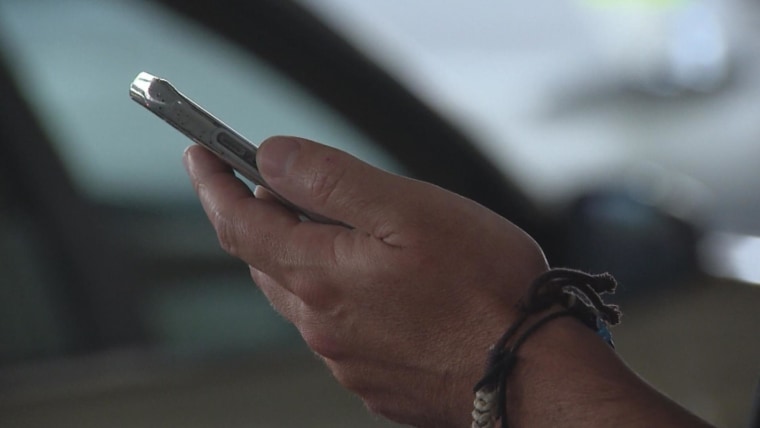What info do these apps need?
Out of privacy concerns, the apps would not need much personal information. Apple and Google said they don’t want to use GPS location data from the cellular network, though public health agencies might ask for that.
The apps are also voluntary, so people would need to choose to download the apps to participate, though the tech companies said they plan to add some of the functions in the phones’ basic operating systems.
How can Bluetooth track who’s nearby?
Bluetooth was standardized as a technology in the 1990s and named for a Viking king, Harald “Bluetooth” Gormsson. (The now-familiar logo is a combination of the king’s initials.)
Byers Market Newsletter
Get breaking news and insider analysis on the rapidly changing world of media and technology right to your inbox.
When Bluetooth is turned on, your phone uses radio waves to figure out which other devices are nearby. In this case, it would blast out an opaque string of characters called an identifier beacon — and other nearby phones would make a time-stamped log of that identifier.
The beacon would change every few minutes to prevent location tracking, and because it’s a random string of characters, the beacon would mean nothing to anyone even if they could see it.
The result is that, on each phone with the app, there would be something like an anonymous record going back 14 days of which other phones have been nearby and when.
What happens to this log of contacts?
The data stays on the phone and doesn’t get sent to Apple, Google or the government, with one exception: if someone tests positive, they can choose to upload their phone’s log into the cloud, which is the group of computers running the system. Just what company or agency will run those servers is not yet clear.
Depending on how the actual apps are built next month, someone will likely need approval from a health authority to do this. That would be to prevent a possible prankster from submitting an intentional false positive.
But even if you test positive and upload your data, the information would be meaningless to the companies or to the government. It would be a list of incomprehensible strings of numbers and letters, together with a timestamp.
How does this help anyone?
Under Google and Apple’s plan, your app would periodically download data associated with everyone who had tested positive in your region. On your phone, the app would search your log of identifier beacons, comparing them with those of positive test cases.
If there’s a match, you would get a notification on your phone — meaning that someone you’ve spent time with recently tested positive. You would not know who it was.
Privacy would be built into it, according to the plan outlined by the companies. All the matching takes place on your phone, not on a central server, and the servers don’t even know whose phones are getting alerts.
The notification would have information on what to do next: perhaps get tested and self-isolate.
What about people I pass on the street?
That wouldn’t be long enough to create a log on your phone. The person and their phone would need to be nearby for at least five minutes, and maybe longer depending on how the apps are developed.
How close you’d need to be is a trickier question. The distance that Bluetooth radio waves can travel varies widely, and objects like walls or windows cause them to deteriorate, the industry says. Even humidity in the air can make a difference.
Will the apps Apple and Google help build track my location?
This question is also tricky. Apple and Google are building out this technology based on Bluetooth proximity data, not location associated with cellular signals. So, the answer initially seemed to be no.
But the companies aren’t building the actual apps. Public health authorities or maybe other companies are doing that. And there’s a chance they will add additional layers and features on top of what Apple and Google are providing and supporting. None of these apps has been released yet, so we can’t examine them yet.
Of course, many smartphone apps already track location data, and it’s important for users to know how their location privacy settings work.
Are enough people going to use this?
That’s not clear. Getting people to download an app may prove difficult, even if mayors and governors urge them to do so. The effort has received an official nod of approval from California Gov. Gavin Newsom.
Then again, people might jump at it if it means returning to something close to normal life. Or maybe office buildings or grocery stores will require you to have it before you can enter.
And eventually, Google and Apple plan to give people a strong nudge. They said that “in the coming months,” they would build contact tracing notifications into the Android and iOS operating systems, pushing out a system that might be slightly more difficult to opt out of.
Without the possible help from a smartphone app, contact tracing is a labor-intensive process. Localities such as San Francisco are planning to hire dozens of people who would conduct interviews with coronavirus patients about their recent contacts.
"Smartphone" - Google News
April 20, 2020 at 11:41PM
https://ift.tt/2VkYNr0
How contact tracing could use Bluetooth to track coronavirus on your smartphone - NBC News
"Smartphone" - Google News
https://ift.tt/2QXWyGT
Shoes Man Tutorial
Pos News Update
Meme Update
Korean Entertainment News
Japan News Update
Bagikan Berita Ini















0 Response to "How contact tracing could use Bluetooth to track coronavirus on your smartphone - NBC News"
Post a Comment